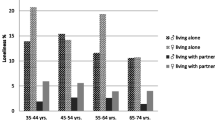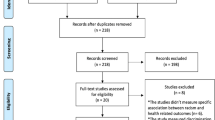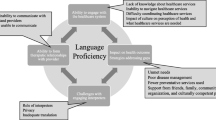Abstract
Objective
The healthy immigrant effect suggests new immigrants to Canada enjoy better health, on average, than those born in Canada, yet crosssectional data suggest that immigrants who have been in Canada for decades have comparable health to their native-born peers. We analyzed prospective cohort data to identify the factors associated with health decline among new immigrants.
Methods
The Longitudinal Survey of Immigrants to Canada was conducted by Statistics Canada and Citizenship and Immigration Canada between April 2001 and November 2005. A probability sample of 7,716 recent immigrants from abroad was interviewed three times: at six months, two years and four years after arrival in Canada. Logistic regression was used to model predictors of a two-step decline in self-reported health (e.g., from excellent to good or from very good to fair).
Results
Among recent immigrants, 15% reported a two-step decline in health in the first four years after arrival in Canada. In comparison, only 6% of non-immigrants from a similar age cohort reported a two-step decline in health during the same time period. The characteristics associated with an increased likelihood of health decline among recent immigrants include initial health status, age, gender, marital status, language skills and place/region of birth. Experience of discrimination was also associated with health decline. One in four immigrants who experienced a health decline reported problems accessing Canadian health services.
Conclusions
The process of immigration is associated with health decline for some recent immigrants. These findings support Health Canada’s identification of immigration as a determinant of health. Strategies need to be developed to improve access to health care among new immigrants.
Résumé
Objectif
Selon l’effet de l’immigrant en bonne santé, les nouveaux immigrants au Canada devraient jouir d’une meilleure santé, en moyenne, que les personnes nées au Canada; pourtant, les données transversales donnent à penser que la santé des immigrants établis au Canada depuis plusieurs décennies est comparable à celle de leurs pairs nés au Canada. Nous avons analysé des données prospectives de cohortes pour repérer les facteurs associés au déclin de la santé chez les nouveaux immigrants.
Méthode
L’Enquête longitudinale auprès des immigrants du Canada a été menée par Statistique Canada et Citoyenneté et Immigration Canada entre avril 2001 et novembre 2005. Nous avons interviewé à trois reprises un échantillon probabiliste de 7 716 personnes ayant récemment immigré de l’étranger: à six mois, deux ans et quatre ans après leur arrivée au Canada. Par régression logistique, nous avons modélisé les prédicteurs d’une baisse de deux niveaux dans leur état de santé autodéclaré (p. ex., d’excellent à bon ou de très bon à moyen).
Résultats
Parmi les immigrants récents, 15 % ont déclaré une baisse de deux niveaux de leur état de santé au cours des quatre premières années suivant leur arrivée au Canada. À titre de comparaison, seulement 6 % des non-immigrants de cohortes d’âges similaires ont déclaré une baisse de deux niveaux durant la même période. Les caractéristiques associées à la vraisemblance accrue d’un déclin de la santé chez les immigrants récents étaient l’état de santé initial, l’âge, le sexe, l’état matrimonial, la maîtrise de la langue et l’endroit/la région de naissance. L’expérience d’une discrimination était aussi associée à un déclin de la santé. Un immigrant sur quatre dont la santé avait décliné a évoqué des problèmes d’accès aux services de santé canadiens.
Conclusion
Le processus d’immigration est associé à un déclin de la santé chez certains immigrants récents. Ces constatations confirment, comme le considère Santé Canada, que l’immigration est un déterminant de la santé. Il faudrait élaborer des stratégies pour améliorer l’accès des nouveaux immigrants aux soins de santé.
Similar content being viewed by others
References
Citizenship and Immigration Canada. Facts and figures: Immigration overview–Permanent and temporary residents. Ottawa, ON: Government of Canada. Available at: https://doi.org/www.cic.gc.ca (Accessed May 9, 2011).
Kennedy S, McDonald JT, Biddle N. The Healthy Immigrant Effect and Immigrant Selection: Evidence From Four Countries. Hamilton, ON: Social and Economic Dimensions of an Aging Population (SEDAP), Report, No. 164, 2006.
Gee E, Kobayashi K, Prus, SG. Examining the healthy immigrant effect in mid-to-later life: Findings from the Canadian Community Health Survey. Can J Aging 2004;23(Supplement):S61-S69.
Ng E, Wilkins R, Gendron F, Berthelot J. Dynamics of Immigrants’ Health in Canada: Evidence from the National Population Health Survey. Ottawa, ON: Statistics Canada, Report, No.: 82-618-MWE2005002, 2005.
Newbold KB, Danforth J. Health status and Canada’s immigrant population. Soc Sci Med 2003;57(10):1981–95.
Pérez, CE. Health Status and Health Behaviour Among Immigrants. Ottawa, ON: Statistics Canada, Report, No.: 82-003-SIE, 2002.
Dunn JR, Dyck I. Social determinants of health in Canada’s immigrant population: Results from the National Population Health Survey. Soc Sci Med 2000;51(11):1573–93.
McDonald JT, Kennedy S. Insights into the ‘healthy immigrant effect’: Health status and health service use of immigrants to Canada. Soc Sci Med 2004;59(8):1613–27.
Borrell LN, Kiefe CI, Williams DR, Diez-Roux AV, Gordon-Larsen P. Self-reported health, perceived racial discrimination, and skin color in African Americans in the CARDIA study. Soc Sci Med 2006;63(6):1415–27.
Massey DS, Alarcon R, Durand J, Gonzalez H. Return to Aztlan: The social process of international migration from western Mexico. Berkeley, CA: University of California Press, 1987.
Menjivar C. Kinship networks among immigrants: Lessons from a qualitative comparative approach. Int J Comparative Sociol 1995;36(3-4):219–32.
George U, Fuller-Thomson E. To stay or not to stay: Characteristics associated with newcomers planning to remain in Canada. Can J Reg Sci 1997;20(1-2):181–93.
George U, Ka Tat Tsang A. Newcomers to Canada from former Yugoslavia: Settlement issues. Inter Soc Work 2000;43(3):381–93.
Statistics Canada. Microdata User Guide: Longitudinal Survey of Immigrants to Canada, Wave 3. Ottawa, ON: Statistics Canada, 2005.
Newbold B. Self-rated health within the Canadian immigrant population: Risk and the healthy immigrant effect. Soc Sci Med 2005;60:1359–70.
Kaplan GA, Camacho T. Perceived health and mortality: A nine-year followup of the human population laboratory cohort. Am J Epidemiol 1983;117(3):292–304.
Idler EL, Benyamini Y. Self-rated health and mortality: A review of twentyseven community studies. Health Soc Behav 1997;38(1):21–37.
Shields M, Shooshtari S. Determinants of self-perceived health. Health Reports 2001;13:35–52.
George U. Caring and women of colour. In: Baines C, Evans P, Neysmith S (Eds.), Women’s Caring: Feminist Perspectives on Social Welfare, 2nd, ed. Toronto, ON: Oxford University Press, 1998;69–83.
Ahmad F, Shik A, Vanza R, Cheung AM, George U, Stewart, DE. Voices of South Asian Women: Immigration and mental health. Women Health 2004;40(4):113–30.
Lewis TT, Everson-Rose SA, Powell LH, Matthews KA, Brown C, Karavolos K, et al. Chronic exposure to everyday discrimination and coronary artery calcification in African-American women: The SWAN Heart Study. Psychosom Med 2006;68(3):362–68.
Barnes LL, de Leon CFM, Lewis TT, Bienias JL, Wilson RS, Evans, DA. Perceived discrimination and mortality in a population-based study of older adults. Am J Public Health 2008;98(7):1241–47.
Paradies Y. A systematic review of empirical research on self-reported racism and health. Int J Epidemiol 2006;35(4):888–901.
Noh S, Beiser M, Kaspar V. Perceived racial discrimination, depression and coping: A study of Southeast Asian refugees in Canada. J Health Soc Behav 1999;40(3):193–230.
Llacer A, De Amo J, Garcia-Fulgueiras A, Ibanez-Rojo V, Garcia-Pino R, Jarrin I, et al. Discrimination and mental health in Ecuadorian immigrants in Spain. J Epidemiol Community Health 2009;63(9):766–72.
Burgess DJ, Ding Y, Hargreaves M, van Ryn M, Phelan S. The association between perceived discrimination and underutilization of needed medical and mental health care in a multi-ethnic community sample. J Health Care Poor Underserved 2008;19(3):894–911.
Mechakra-Tahiri S, Zunzunegui MV, Séguin L. Self-rated health and postnatal depressive symptoms among immigrant mothers in Quebec. Women Health 2007;45(4):1–17.
Boyd M. Family and personal networks in international migration - recent developments and new agendas. Int Migr Rev 1989;23(3):638–70.
Aguilera, MB. The impact of the worker: How social capital and human capital influence the job tenure of formerly undocumented Mexican immigrants. Soc Inq 2003;73(1):52–79.
Bauder H. Habitus, rules of the labour market and employment strategies of immigrants in Vancouver, Canada. Soc Cult Geog 2005;6(1):81–97.
George U, Fong E, Da WW, Chang R. Recommendations for the Delivery of ISAP Services to Mandarin Speaking Newcomers From Mainland China. Toronto: Joint Centre of Excellence for Research on Immigration and Settlement, 2004.
Hao L, Johnson, RW. Economic, cultural and social origins of emotional wellbeing: Comparisons of immigrants and natives at midlife. Res Aging 2000;22(6):599–629.
Lillard LA, Waite, LJ. ’Til death do us part: Marital disruption and mortality. Am J Sociol 1995;100:1131–56.
Umberson D. Gender, marital status, and the social control of health behavior. Soc Sci Med 1992;34:907–17.
Zhang Z, Hayward M. Gender, the marital life course, and cardiovascular diseases in late midlife. J Marr Fam 2006;68:639–57.
Umberson D, Williams K, Powers DA, Liu H, Needham B. You make me sick: Marital quality and health over the life course. J Health Soc Behav 2006;47(1):1–16.
Kandula NR, Lauderdale DS, Baker, DW. Differences in self-reported health among Asians, Latinos, and non-Hispanic Whites: The role of language and nativity. Ann Epidemiol 2007;17(3):191–98.
Berkman LF, Glass T, Brissette I, Seeman, TE. From social integration to health: Durkheim in the new millennium. Soc Sci Med 2000;51:843–57.
Author information
Authors and Affiliations
Corresponding author
Additional information
Conflict of Interest: None to declare.
Rights and permissions
About this article
Cite this article
Fuller-Thomson, E., Noack, A.M. & George, U. Health Decline Among Recent Immigrants to Canada: Findings From a Nationally-representative Longitudinal Survey. Can J Public Health 102, 273–280 (2011). https://doi.org/10.1007/BF03404048
Received:
Accepted:
Published:
Issue Date:
DOI: https://doi.org/10.1007/BF03404048
Key words
- Emigration and immigration
- longitudinal studies
- discrimination
- health status disparities
- minority health




